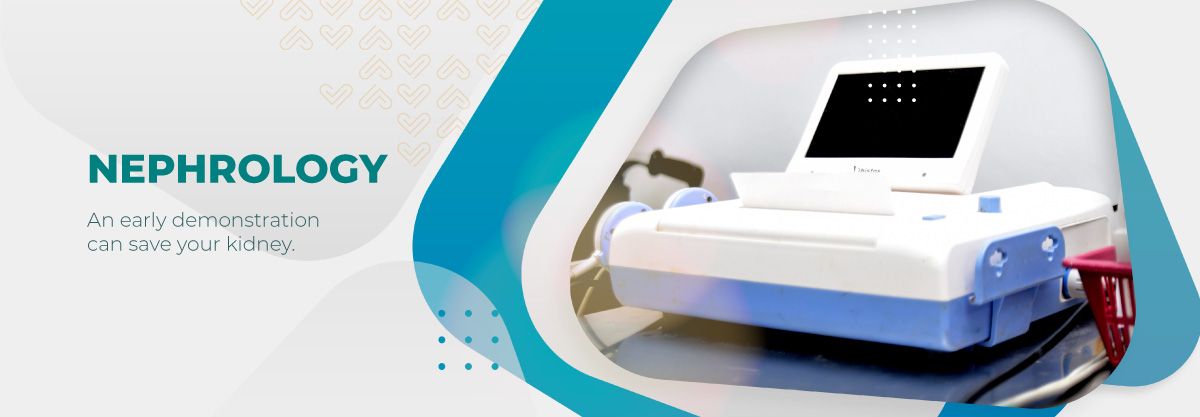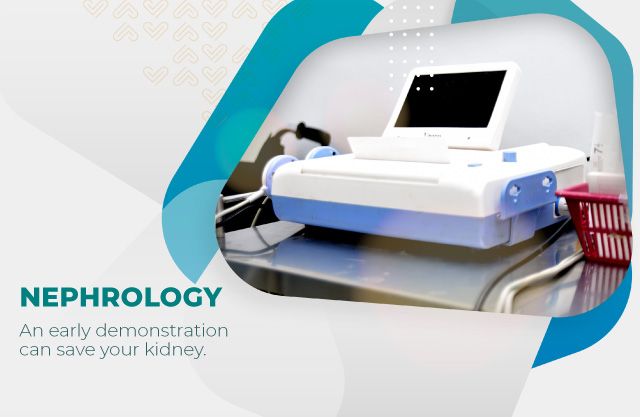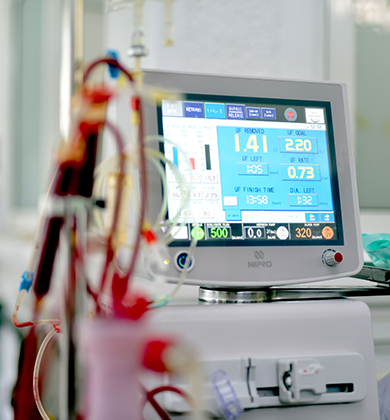Emergency Tel: 211 5157


- Home
- Specialities
- Nephrology
Nephrology

-
Hemodialysis
In hemodialysis, a machine filters wastes, salts and fluid from your blood when your kidneys are no longer healthy enough to do this work adequately. Hemodialysis is one way to treat advanced kidney failure and can help you carry on an active life despite failing kidneys.
With hemodialysis, you'll need to:- Follow a strict treatment schedule
- Take medications regularly
- Make changes in your diet
Hemodialysis is a serious responsibility, but you don't have to shoulder it alone. You'll work closely with your health care team, including a kidney specialist and other professionals with experience managing hemodialysis.
Why it's done
Your doctor will help determine when you should start hemodialysis based on several factors, including your:- Overall health
- Kidney function
- Signs and symptoms
- Quality of life
- Personal preferences
You might notice signs and symptoms of kidney failure (uremia), such as nausea, vomiting, swelling or fatigue. Your doctor uses your estimated glomerular filtration rate (eGFR) to measure your level of kidney function. Your eGFR is calculated using your blood creatinine test results, sex, age and other factors. A normal value varies with age. This measure of your kidney function can help to plan your treatment, including when to start hemodialysis.
Hemodialysis can help your body control blood pressure and maintain the proper balance of fluid and various minerals — such as potassium and sodium — in your body. Normally, hemodialysis begins well before your kidneys have shut down to the point of causing life-threatening complications.
Common causes of kidney failure include:- Diabetes
- High blood pressure (hypertension)
- Kidney inflammation (glomerulonephritis)
- Kidney cysts (polycystic kidney disease)
- Inherited kidney diseases
- Long-term use of nonsteroidal anti-inflammatory drugs or other medications that could harm the kidneys
However, your kidneys may shut down suddenly (acute kidney injury) after a severe illness, complicated surgery, heart attack or other serious problem. Certain medications also can cause kidney injury.
Some people with severe long-standing (chronic) kidney failure may decide against starting dialysis and opt for a different path. Instead, they may choose maximal medical therapy, also called maximum conservative management or palliative care. This therapy involves active management of complications of advanced chronic kidney disease, such as fluid overload, high blood pressure and anemia, with a focus on supportive management of symptoms that affect quality of life.
Other people may be candidates for a preemptive kidney transplant, instead of starting on dialysis. Ask your health care team for more information about your options. This is an individualised decision because benefits of dialysis may vary, depending on your particular health issues.
Doctor Schedule
Doctors scheduled for the week.
| Monday & Wednesday | 11hr - 13hr | Dr Kevin Fagoonee |
Doctors and Specialists of Nephrology
Contact Us
-

4, Labourdonnais Street,
Port-Louis -

(230) 211 5157
(230) 211 5181
(230) 211 7559 -

(230) 211 4647
Follow Chisty Shifa Clinic
Patients
Publications
Terms & Conditions | Privacy Policy | COPYRIGHT © 2022 Chisty Shifa.
All rights reserved. Powered by Nova Interaction


